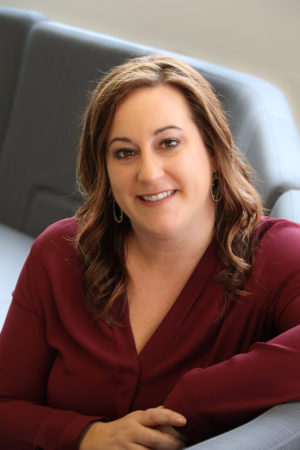The healthcare industry opened the door for digital tools like never before in 2020. Baltimore’s b.well Connected Health was ready to greet it.
After a year of fast growth, the company said Tuesday that it raised $32 million in an oversubscribed Series B round that will help with further go-to-market expansion.
The investment round was led by HLM Venture Partners, a Boston-based firm focused on healthcare technologies. Also participating in the financing were existing investors ThedaCare, UnityPoint Health and Well Ventures, a subsidiary of Walgreens Boots Alliance, Inc. b.well Connected Health last raised a $16 million Series A in 2020.
The company’s platform is designed as a “digital front door” for healthcare. Users who access its app via phone or computer can see all of their healthcare data in one place, and share it with people who they trust. Using advanced analytics and data science, the platform also offers insights that provide personalized guidance on care, as well as tools to schedule an in-person or virtual visit. These are the kinds of consumer tools that have powered ecommerce, food delivery and fintech. b.well wants to bring them to healthcare.
“Consumers have a different expectation now of what an environment looks and feels like, and it’s one that comes with transparency, convenience, and it’s personalized to them,” CEO Kristen Valdes told Technical.ly.
b.well has gained traction with healthcare systems, health plans and self-insured employers, who in turn make it available to members. Across contracts, it now covers 7 million lives. Valdes said this growth was driven in part by the pandemic, which accelerated adoption of telehealth and digital tools in healthcare as systems sought to reach members who could not go into a clinic. It was also spurred by continuing regulatory change, like an interoperability rule that allows patients to access healthcare data via newly required APIs and a hospital price transparency rule that Valdes said centers consumers.
“In the wake of the pandemic and the rise of virtual health, every health system in the country should rethink how they engage with their community and patients, especially in competitive markets,” HLM General Partner Steven Tolle, who will join the company’s board, said in a statement. “HLM looks for investments like b.well that have proven early stage adoption and strong leadership. They have already achieved significant scale with adoption by several name-brand health systems as well as large self-insured employers, plus the company is led by an impressive team of industry veterans, and is poised for substantial growth in the coming year.”

Emerging from the pandemic, CEO Kristen Valdes sees how the platform can be harnessed to help patients access care where it is most convenient for them. This could mix in-person visits, virtual visits and digital health tools. As shown with vaccinations, retail pharmacies can also have an expanded role as a key place to harness care. This creates an environment where the different entities that b.well works with can connect to make new options available via b.well.
“There’s a big opportunity for a lot of our customers who are traditionally siloed to become collaborators through our platform,” she said.
Team growth has come along with this traction. The company grew from just under 30 employees last year to more than 100 now. Among the additions was a chief revenue officer that built out a sales and commercialization strategy, and Valdes said “it’s time to put gas on the fire.” That will mean hiring, both in sales and marketing, as well as data-focused technologists. (Check out its open roles.)
As it takes a firm mantle beyond the startup phase as a growth company, Valdes said the company has taken a role in initiatives to help the wider tech community. Given the policy that’s made in Woodlawn at the Centers for Medicare and Medicaid Services headquarters and the world renowned healthcare institutions like Johns Hopkins and the University of Maryland, Valdes thinks the area is well-positioned to be the digital health capital of the country. And the company has taken an active role in building Baltimore’s tech community broadly. Among the recent initiatives it has joined is UpSurge Baltimore, the effort to make Baltimore a tech hub with equity as its strength.
“We are really focused on trying to build an ‘equitech’ city in Baltimore and are committed to being headquartered here in Baltimore,” she said.
The company went virtual in 2020, and has hired across the country, adding to an existing presence in Austin. It put a particular focus on work-life balance, while adding an integration on Slack where teammates can praise each other called Bonusly, regular coffee chats and virtual events like escape rooms and paint nights. While the company will maintain a flexible model that allows team members to work from wherever is best for them, Valdes said team members are ready to see each other. Many have yet to meet face-to-face.
Having recognized that, people are ready to get back together and collaborate in person,” Valdes said. “We are actively exploring space where we can get teams together.”
That’ll include Baltimore, where it continues to be headquartered and identifies strongly, even as it goes forward growing a model that works anywhere.







